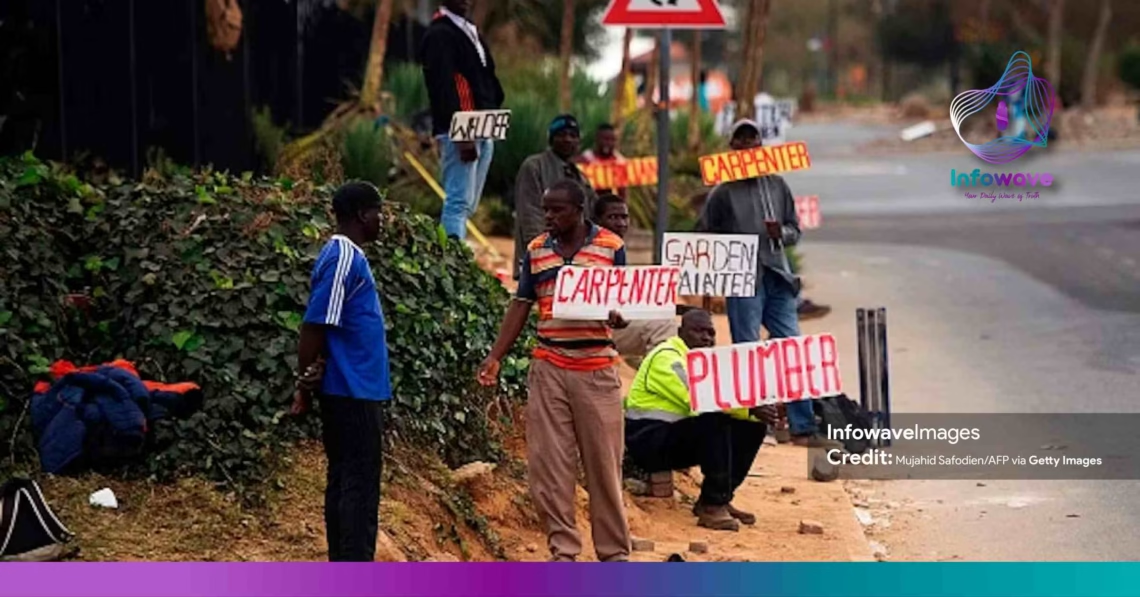Every day, thousands of South Africans wake up early, print CVs, and walk long distances or spend their last money on transport to hand-deliver job applications — only to hear nothing back. For many, this process repeats itself week after week, month after month. The growing frustration among locals is not just about unemployment; it’s about the feeling of being deliberately excluded in their own country.
A popular sentiment that has taken root is the belief that employers are giving jobs to illegal foreigners, ignoring deserving South African applicants. But how far is this claim true?
The Legal Landscape
South African labour and immigration laws are clear: illegal employment is prohibited. Employers are required to verify documentation and work permits before hiring non-citizens. In theory, this system should protect both local workers and legal foreign nationals.
However, reality paints a more complicated picture. In informal and low-wage sectors, such as hospitality, construction, domestic work, and agriculture, illegal hiring is an open secret. Some employers prefer undocumented migrants because they’re seen as “cheaper” and less likely to challenge exploitation.
The Frustration Is Real
While this kind of exploitation may not be widespread in corporate recruitment, its impact is deeply felt. Local job seekers, especially the youth, grow more disillusioned when they see people they believe to be undocumented foreigners working while they are ignored. This leads to a dangerous spiral of blame, resentment, and division.
“You start to wonder if applying is just a waste of time,” says Sipho, a 25-year-old hospitality graduate who’s been unemployed for over two years despite applying to dozens of restaurants and hotels.
Beyond the Foreigner Debate
But blaming illegal foreigners is only part of the story. South Africa’s unemployment crisis is rooted in deeper structural issues: slow economic growth, limited job creation, corruption, a mismatch of skills, and underinvestment in entrepreneurship and education. These are not problems caused by foreigners — legal or not.
In fact, many immigrants do the jobs most locals avoid — long hours, low pay, hard labour. If the jobs were decent, fair, and well-regulated, South Africans would fill them. Instead of focusing on immigration status alone, the spotlight must shift to labour law enforcement and corporate accountability.
The Danger of Division
While it’s fair to demand that employers prioritize qualified locals, it’s dangerous to promote xenophobia. Not all foreigners are illegal. Many contribute positively to the economy, pay taxes, and start businesses that employ locals.
Instead of turning on each other, we should be turning to the government and employers, demanding transparency in hiring, fair labour practices, and more opportunities for all.
What Needs to Change
- Stricter enforcement of employment laws and penalties for hiring undocumented foreigners.
- Support for South African job seekers through transport allowances, interview coaching, and visibility tools.
- Transparent hiring practices, especially in sectors prone to exploitation.
- A national conversation that separates fact from emotion and aims for fairness.
Conclusion
South Africans are not wasting their time applying for jobs — they’re fighting for survival in a system that feels rigged. But the solution isn’t to blame foreign workers. The solution is to fix the system, enforce the law, and build a country where everyone is treated fairly, regardless of where they come from — and where citizens don’t feel like strangers in their own economy.
Have a thought to share? Leave a comment below and join the conversation.


okay
interesting
Interesting